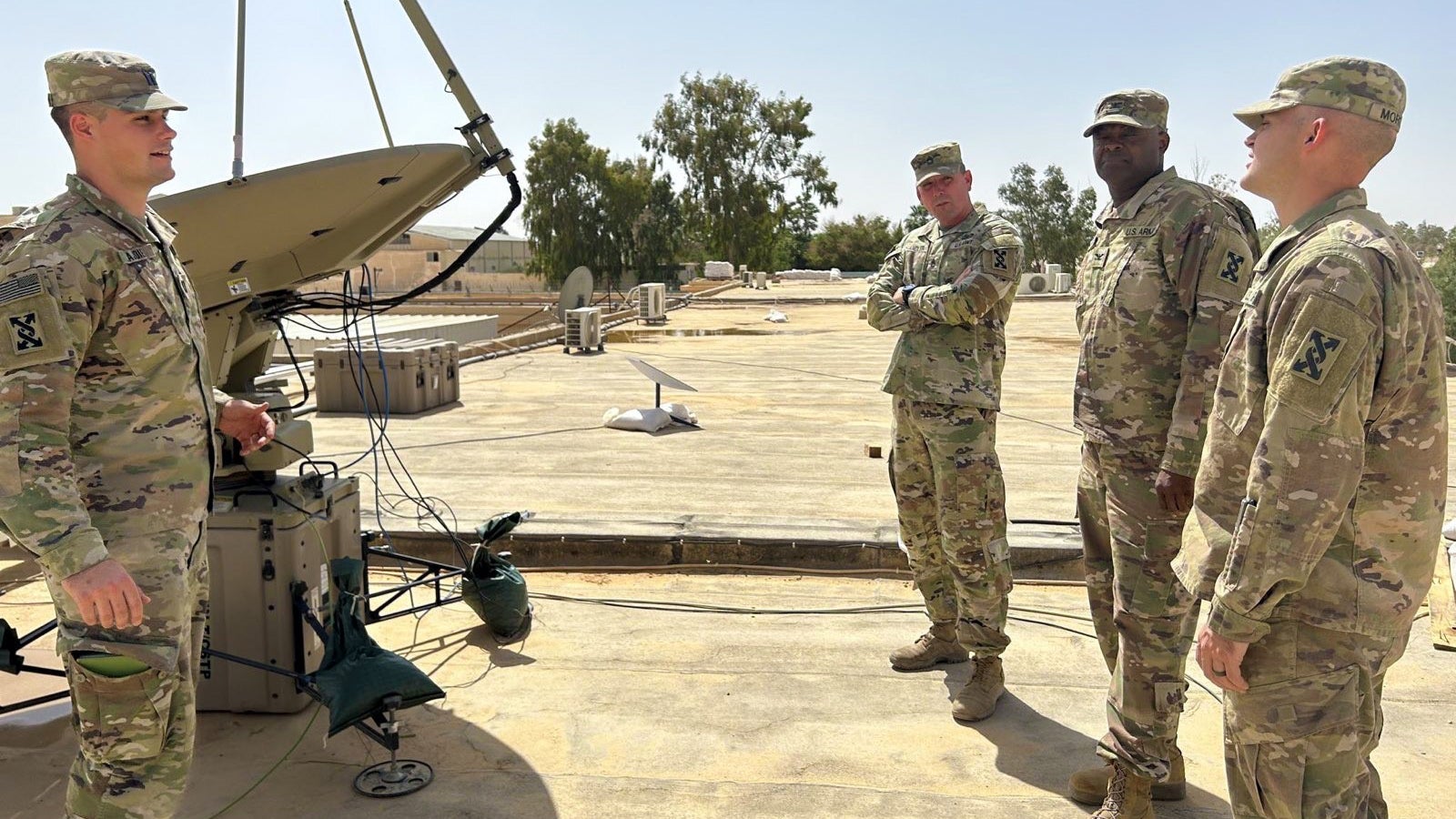Cyber Tools Changing Warfare
Cyber Tools Changing Warfare

From increasing productivity to processing large amounts of data, artificial intelligence can change the way soldiers operate and fight, a panel of experts said during a forum hosted by the Association of the U.S. Army.
“How can we use these tools to make decisions faster and better?” said Maj. Gen. Matthew Easley, deputy principal information operations adviser in the Office of the Undersecretary of Defense for Policy. Enabling decision-making is the first pillar of information advantage, he said.
In an age when 85% of the world’s population has a smartphone—the equivalent of 5 or 6 billion devices—the Army must be able to protect and defend its networks while analyzing and processing a “huge amount” of data and information, Easley said during the panel discussion from earlier this year titled “Applying AI for Information Advantage.”
“If you think what cell phones are doing every day, either explicitly or implicitly, is the phone is collecting data on you,” Easley said, adding that the Army must figure out how to do that with its cyber operations.
“Yes, we collect data … but there’s still lots of data in the Army that we are not capturing fully,” he said.
The Army also must migrate to a hybrid cloud environment, Easley said. “Yes, we’re going to continue to have lots of legacy data centers, but as we need to surge, we need to move around the world. Cloud environments make it much, much easier for us to do global operations.”
Matt Gaston, director of the AI division at Carnegie Mellon University’s Software Engineering Institute, said the U.S. military has “exquisite” sensors. “We can collect so much data,” he said. “We can have lots and lots of information. Where the opportunity with AI is to start to organize, prioritize. You don’t always just want more data. It’s find the data you want, or connect the two dots that you need to connect, and the gamut of AI technologies can be used to do that.”
For day-to-day operations, AI can help with productivity, said Sami Akbay, data and analytics product manager for Google Cloud. Google has “quite a few” technologies or programs that can increase a worker’s productivity, Akbay said. As an example, one program can summarize a document for the user. Or it can rewrite bullet points into a more formal narrative format, he said.
“It allows me to process a much larger amount of information on an ongoing basis,” Akbay said. “Productivity-wise, it really changes how much individuals can produce, but it also pushes you to be better at prompting the system, so it becomes more useful for you.”
These programs are just the beginning. “There’s a humongous opportunity ahead of us,” Akbay said. “I think we’re living in some of the most exciting times, and I think it’s just going to get better.”
Kyle Fox, chief technology officer for SOS International, agreed, urging the audience of Army and industry leaders to experiment and test now and “learn together.”
“It transforms the way we interact with our workforce. It changes the way we think about operating,” Fox said. “It’s pretty incredible stuff.”

